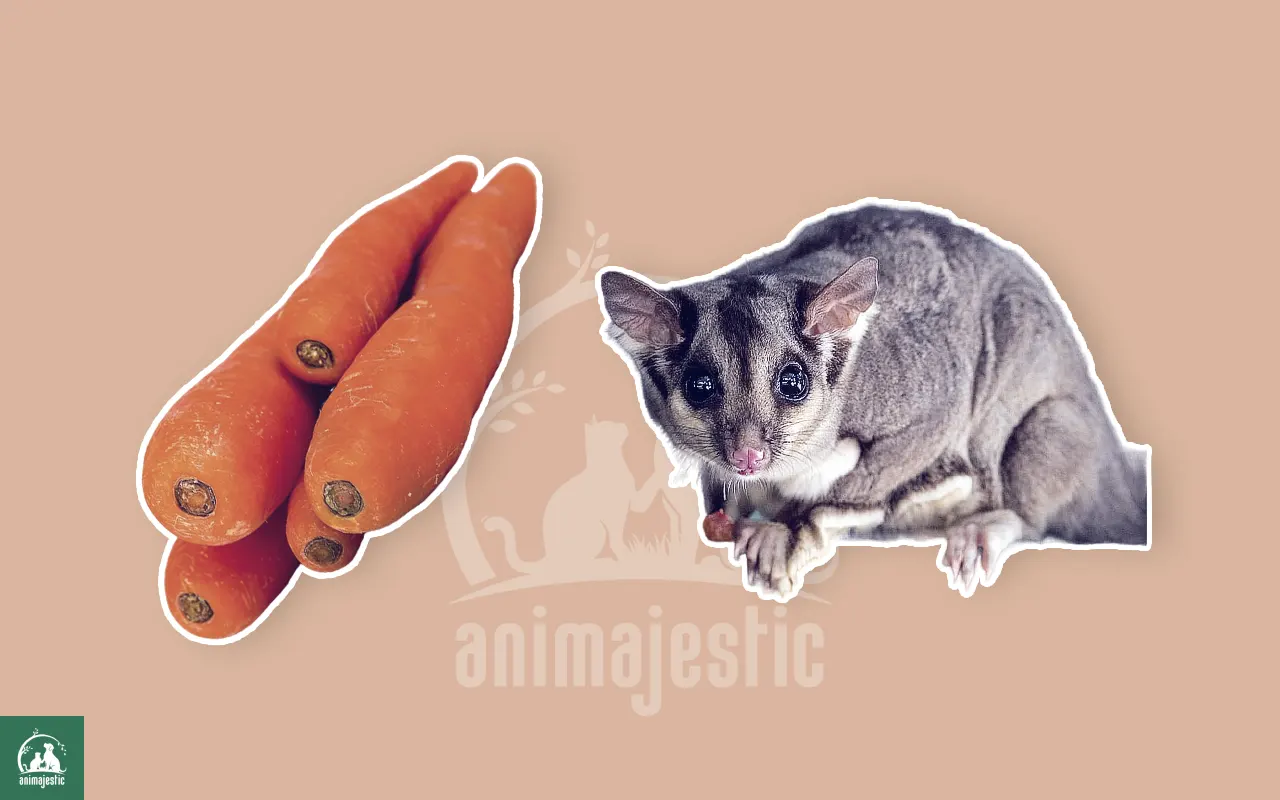For those smitten by the charm of exotic pets, sugar gliders stand out with their captivating looks, playful nature, and unique ability to glide across the air.
These lovable creatures bring joy and enchantment into homes, but they also come with the responsibility of providing a proper diet that matches their origin, diversity, and nutritional needs.
Among the many queries that arise in the pursuit of this important task is the suitability of everyday vegetables, such as carrots, in a sugar glider’s diet.
In our detailed exploration, we are set to answer the pressing question – Can sugar gliders eat carrots? and also look into their dietary needs.
Understanding the Sugar Glider Diet
As omnivores, sugar gliders have the capacity to consume both animal and plant matter. In the wild, their diet includes insects, small birds or rodents, bird eggs, nectar, tree sap, fruits, and vegetables.
However, in captivity, sugar gliders’ diets often need to be modified and carefully watched to ensure they’re receiving all necessary nutrients.
The Role of Fruits and Vegetables in Their Diet
Fruits and vegetables play a vital role in a sugar glider’s diet. These foods, when served correctly, provide the necessary vitamins and minerals needed for optimal health. However, it’s important to remember that fruits and vegetables should make up about 25% of their diet, as part of a larger balanced diet that also includes protein sources and suitable grains.
Can Sugar Gliders Eat Carrots?
Simply put, yes, sugar gliders can indeed eat carrots. Carrots, being a substantial source of numerous vital nutrients, can contribute positively to a sugar glider’s health when given appropriately.
They’re rich in essential vitamins such as Vitamin A, Vitamin K, Vitamin C, and minerals like potassium. Furthermore, the dietary fibers present in carrots aid in digestion, encouraging a healthy gut.
Benefits of Carrots for Sugar Gliders
Introducing carrots to your sugar glider’s diet can offer several benefits:
- Promotes Visual Health: The rich Vitamin A content in carrots is known to enhance vision. This is particularly crucial for sugar gliders, who are predominantly nocturnal and need good vision for their night-time activities.
- Aids Digestion: The fiber in carrots aids digestion and can help in maintaining a healthy weight for sugar gliders.
- Boosts Immunity: The presence of Vitamin C in carrots can be beneficial in strengthening the immune system and ameliorating the overall health of sugar gliders.
But remember, providing a diverse diet is the key to ensuring that your sugar glider receives all the nutrients it requires.
Precautions While Feeding Carrots to Sugar Gliders
If you decide to feed carrots to your pet, it’s crucial to adhere to a few guidelines:
- Moderation: Feed carrots sparingly. They shouldn’t form the majority of your pet’s diet. Overconsumption could potentially lead to an unhealthy balance of nutrients.
- Preparation: Always wash and peel carrots thoroughly before feeding them to your sugar glider to remove any pesticides or other harmful substances. Cut them into small, digestible pieces to avoid any choking hazards.
- Monitor Reaction: Introduce carrots gradually to your sugar glider’s diet and monitor their reaction. If they show signs of distress or discomfort, discontinue feeding carrots and consult a veterinarian.
In conclusion, Carrots can be a healthy part of a sugar glider’s diet when served correctly. Following the above guidelines, these nutritious vegetables can provide lasting benefits to your pet while keeping them excited about their food. However, always consult a veterinarian before making significant changes to your sugar glider’s diet, to ensure the most balanced and beneficial diet for this delightful marsupial.
